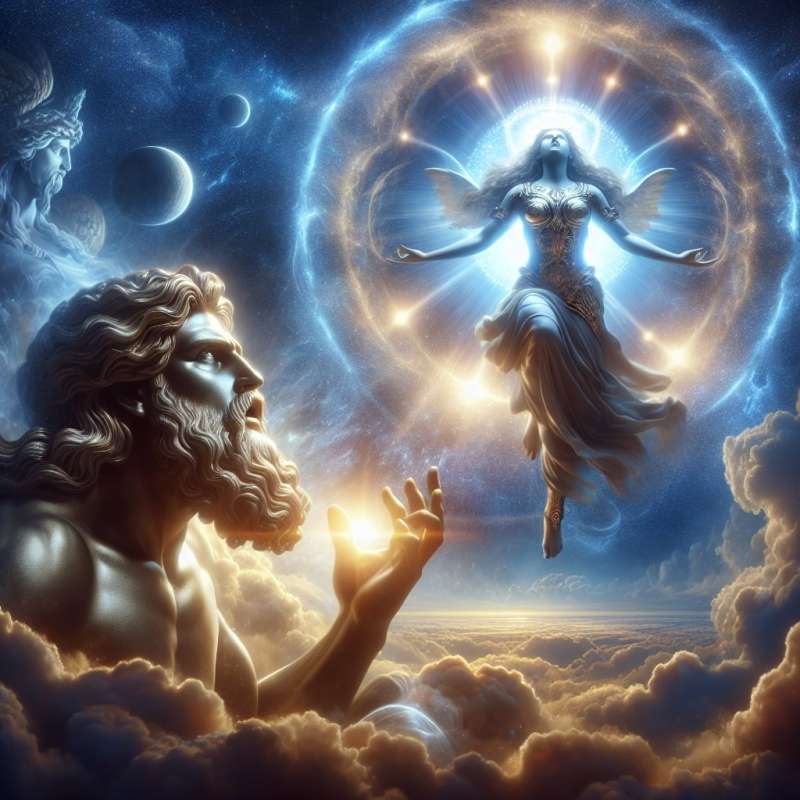
The Twelve Olympians
The pantheon of major deities in ancient Greece resided atop Mount Olympus. They included Zeus, Hera, Poseidon, Demeter, Athena, and Apollo. Each had distinct roles, domains, and stories, profoundly influencing Greek culture.
Zeus: The Supreme Ruler
Zeus, god of the sky and thunder, wielded the fearsome thunderbolt. Known for his many affairs, he often changed forms to woo mortals and goddesses alike, with offspring that included famous heroes and other gods.
Athena's Unique Birth
Athena, goddess of wisdom, was born fully armed from Zeus's forehead. Remarkably, she had no mother; she sprang forth after Zeus experienced an immense headache, symbolizing a birth of intellect and strategic warfare.
Apollo's Diverse Roles
Apollo, god of many aspects including music, poetry, art, oracles, archery, and medicine, had significant influence. He provided the Oracle of Delphi with prophecies and was thought to move the sun with his chariot.
Mysterious Dionysus
Dionysus was the god of wine, fertility, and religious ecstasy. Uniquely, he was the only Olympian born from a mortal mother. His cult involved secret rituals and has been linked to the development of Greek theatre.
Hades: Misunderstood Deity
Often perceived as malevolent, Hades was the god of the underworld, ruling over the dead. Unlike his depiction in popular culture, Hades was not evil; his role was more about maintaining balance and the cycle of life and death.
Artemis: Protector and Hunter
Artemis, twin sister to Apollo, was the virgin goddess of the hunt, wilderness, and childbirth. She fiercely protected her purity and was accompanied by a band of nymphs. She represents the untamed and free aspects of nature.Zeus's Absurd Transformation
To woo Europa, Zeus transformed into a gentle white bull, a wildly unexpected form for the mighty god of thunder and sky.
Who rules atop Mount Olympus?
Zeus, god of thunder
Apollo, the sun mover
Dionysus, god of wine
Company